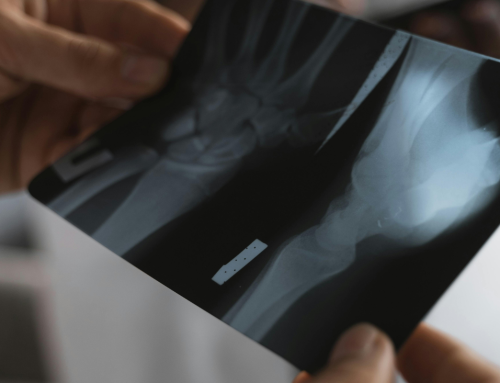Recovery from a fracture can be a long and challenging process. While most people focus on the physical aspects of healing, it’s equally important to pay attention to mental health. The frustration of limited mobility, physical pain, and dependence on others can take a toll on your emotional well-being. This blog post aims to provide practical tips for maintaining mental health while healing from a fracture, helping you stay strong and resilient throughout your recovery.

Understanding the Psychological Impact of Fracture Recovery
Healing from a fracture involves more than just physical recovery. The emotional struggles that accompany this process can be overwhelming.
Emotional Struggles During Physical Healing
The pain and limited mobility associated with fractures can lead to feelings of frustration and helplessness. You might find yourself dependent on others for simple tasks, which can be a bitter pill to swallow. These emotional challenges often amplify the physical pain, making the recovery process even harder.
Common Mental Health Issues Post-Fracture
In Canada, approximately 20% of individuals recovering from a physical injury such as a fracture experience symptoms of anxiety or depression. This highlights the need for a holistic healing approach that addresses physical and mental health concerns.
Anxiety is a common issue for individuals recovering from a fracture. Concerns about the recovery timeline and future mobility can keep you up at night. Depression can also set in due to inactivity and a perceived loss of autonomy. Fear of re-injury can make you overly cautious, further hindering your recovery process.
Practical Tips for Maintaining Mental Health During Recovery
While the road to recovery can be long, there are several strategies you can employ to maintain your mental health.
Set Realistic Recovery Goals
Setting small, achievable goals is crucial for maintaining physical and mental health during recovery. Celebrate minor milestones, such as walking a few steps or reducing your pain medication. Work closely with healthcare providers to track your physical and emotional progress. This will help you stay motivated and optimistic.
Stay Socially Connected
Isolation can exacerbate mental health issues during the recovery period. Stay connected with friends and family through virtual check-ins, video calls, and social media groups. Honest communication about your emotional struggles can foster a supportive environment, making you feel less alone in your recovery journey.
Practice Mindfulness and Relaxation Techniques
Mindfulness can be a powerful tool for managing stress during fracture recovery. Techniques such as meditation and breathing exercises can help you stay calm and focused. Numerous apps and online resources are available to guide you through mindfulness practices. By focusing on the mind-body connection, you can enhance your overall well-being.
Keep Engaged with Light Activities
Staying mentally active is crucial for avoiding feelings of stagnation. Engage in light, mentally stimulating activities such as reading, puzzles, or learning new skills online. Keeping your mind busy not only distracts you from pain but also helps you maintain a sense of purpose and accomplishment.
Maintain a Healthy Routine
A consistent daily routine can combat feelings of aimlessness during recovery. Focus on nutrition, hydration, and adequate sleep, as these are essential for both physical and mental health. As advised by your doctor, gentle physical activity can also help improve your mood and accelerate your recovery.
Reach Out for Professional Support
Seeking professional support can provide additional avenues for maintaining mental health during recovery.
Importance of Seeking Mental Health Support
Don't hesitate to speak with healthcare professionals about your emotional struggles. Counselling and therapy, available both online and in-person, can offer valuable coping strategies. Mental health professionals can provide personalized guidance to help you manage your emotions effectively.
Support Groups
Joining a support group can offer a sense of community and shared experiences. Online forums and social media communities are great places to connect with others who are also recovering from fractures. Sharing your story and hearing others' experiences can provide comfort and practical advice.
The Role of Positive Thinking and Visualization in Healing
A positive mindset can significantly influence physical recovery.
The Science Behind Positive Thinking
Research shows that a positive attitude can enhance the body's healing processes. Focusing on positive outcomes and believing in your ability to recover can make a tangible difference in your healing trajectory.
Introduction to Visualization Techniques
Visualization involves imagining the body healing and focusing on future activities you look forward to. This technique can boost your morale and provide a clear mental image of your recovery goals. Reflecting on your personal strengths and resilience can further empower you during this challenging time.
Healing from a fracture is a holistic process that encompasses physical and mental recovery. You can support your mental health by setting realistic goals, staying socially connected, practicing mindfulness, engaging in light activities, and maintaining a healthy routine during this time.
Remember, seeking professional help and joining support groups to share your experiences is okay. A positive mindset and visualization techniques can also be crucial to your recovery.
For those looking to accelerate their physical healing, consider exploring the Melmak LIPUS device, a proven method to speed up fracture recovery. By addressing both your physical and mental health, you can ensure a smoother and more complete recovery. Contact Fracture Healing to learn more.
How did you stay positive the last time you endured an injury? What mental health tips could you share with those healing from a fracture? Share your thoughts with our readers in the comments below.





